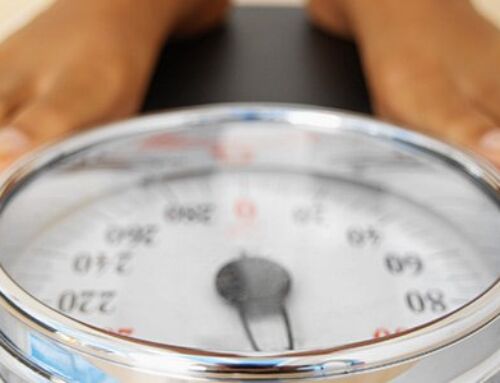PCOS and nutrition: the best diet changes for symptom control
PCOS and nutrition: the best diet changes for symptom control
Are your cycles irregular? Heavy? Do you have trouble losing weight no matter what changes you make? Do you have acne? And are you losing hair on your head yet growing in places you don’t want it?
These symptoms describe a condition known as polycystic ovarian syndrome (PCOS) affecting more than 20% of women. It’s important to note that not all women with PCOS have detectable ‘cysts’ on their ovaries so whilst your ultrasound might be normal your symptoms are not.
Fundamentally PCOS is a metabolic and hormonal syndrome. PCOS is usually preceded and exacerbated by insulin resistance. Insulin clears glucose from the blood by knocking on the doors of cells to let glucose in. When we have years of sharp glucose spikes those cell doors become ‘deaf’ to insulin’s banging. When we have chronically high blood insulin, we are insulin resistant. People with insulin resistance struggle to burn fat and in PCOS high insulin causes the cells in the ovaries to produce testosterone, which is toxic to egg development. No egg means no ovulation which is where we begin to see the missing or irregular periods. Elevated testosterone is also responsible for acne and unusual hair growth in women with PCOS.
The aim of nutrition in those with PCOS is to lower insulin! We are going to do this by removing insulin triggering foods such as refined carbohydrates and slowing the absorption of the carbohydrates we do eat. Over time this will make us sensitive to insulin again and promote healthy egg formation and lower testosterone for a regular symptomatic free cycle.
The three pillars of PCOS nutrition
Pillar One: Slow Carbs
Have you ever heard of bread that is ‘Low GI?’ GI stands for Glycaemic Index and it describes how quickly the carbohydrates in a particular food product cause a blood sugar spike.
We want to choose foods that are Low GI and therefore raise your blood sugar slowly, giving your body time to blunt the spike and use as little amount of insulin as possible. Remember with PCOS we want to flatten that spike as much as possible! Big spike = lots of insulin.
|
Simple fast carb to slow carb swaps |
|
|
White rice → |
50/50 Brown rice and lentils |
|
Bread → |
Wholemeal bread and sourdough |
|
Sweet treats (chocolate, lollies, chips etc) → |
Whole pieces of fruit, dark chocolate, seed crackers |
|
White potato → |
Sweet potato, carrot, pumpkin |
Pillar Two: Fat and Protein at every meal
When the body digests carbohydrates it happens rapidly, yet when the same carbs are surrounded by added fat and protein that same carb rich food is digested much slower. When we dress up our carbs with fat and protein at every meal, we slow carb absorption and the resulting insulin spike. Meaning we’re going to feel fuller for longer with no mid-afternoon sugar crash or cravings.
Every time you eat, I want you to ask where the protein and healthy fat source is, and if it’s not present add it!
|
How to dress up carbohydrates with protein and fat |
|
|
Plain toast → |
Eggs on toast or nut butter on toast |
|
Breakfast oats → |
Add half a scoop of protein powder to your oats when cooking and a tablespoon of nut butter on top at the end |
|
Sandwich for lunch → |
Meal prep. Focus on savoury lunches that have lean protein, slow carbs, and healthy fats.
Example: Mexican spiced chicken (lean protein) bowl with black beans (slow carb), salad, and avocado (healthy fat) |
|
After dinner dessert → |
Whole fruit, dark chocolate & nut butter |
|
Plain crackers and cheese → |
Carrot, celery, or seed crackers with hummus |
Pillar Three: Fibre, Fibre, Fibre
Fibre is a triple bonus not only does it work like protein and fat to slow glucose absorption, but it also feeds your gut microbiome and pulls excess oestrogen out of your body and into the toilet.
After your body has used oestrogen for its job, it places it into the bile to be ‘thrown out’. If someone is eating enough fibre, the fibre binds with the bile in the intestine and together they leave your body in the form of a stool. If you aren’t eating enough fibre that oestrogen rich bile is reabsorbed back into the body where it raises your blood oestrogen, throwing all your hormones out of whack and contributing to those nasty PCOS symptoms.
Like above when we talked about having a healthy fat and protein at every meal, we need a fibre source at every meal too.
Here are my favourite ways to add extra fibre!
- Add a small handful of legumes at every meal: chickpeas, lentils, beans – you can use canned just make sure they’re organic
- Increase your consumption of fresh fruit and vegetables – the more the better!
- Add psyllium husk throughout your day. I add a teaspoon of psyllium husk to my glass of water throughout the day or I add it to smoothies and soups. It doesn’t have a taste so you can easily disguise it in just about anything. You can purchase psyllium husk in our clinic or on our online store.
You have an opportunity at every meal to promote health or disease but making lifestyle changes can be hard. Our Newcastle naturopaths can help you identify and overcome barriers to making change and prescribe you a nutrition plan that is tailored specifically to you.
You can book an appointment by calling 02 4961 4075, or by clicking here.




